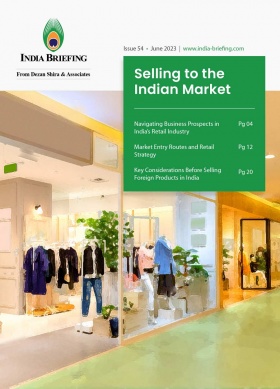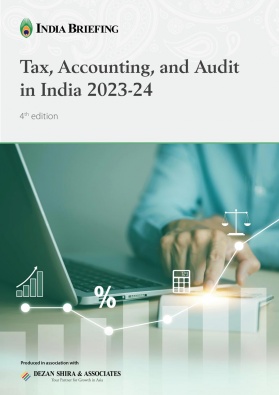India, UAE Agreements on Currency Settlement, Payment Systems, and Key Sector Collaboration
During Prime Minister Narendra Modi’s visit to the United Arab Emirates (UAE) in July 2023, India and the UAE signed three agreements to strengthen trade and economic cooperation. These agreements include a framework for using local currencies for trade settlement, linking up their fast payment systems, and the establishment of an Indian Institute of Technology (IIT) campus in Abu Dhabi. Further, a joint statement on climate change was issued, which recognized investments in renewable energy, green hydrogen, energy efficiency, and low-carbon solutions as catalysts for sustainable economic growth and job creation.
India and the UAE have inked three agreements to boost trade and economic cooperation between the two countries. The agreements, which were signed during Indian Prime Minister Narendra Modi’s visit to Abu Dhabi on July 15, 2023, include a framework for using local currencies for trade settlement, establishing a link between the two countries’ fast payment systems, and an agreement to set up a campus of the Indian Institute of Technology (IIT) Delhi in Abu Dhabi.
India and the UAE have witnessed significant growth in bilateral trade, with trade volumes reaching US$85 billion in 2022. The UAE was India’s third-largest trading partner for that year, while India became the UAE’s second-largest trading partner. The Comprehensive Economic Partnership Agreement (CEPA), signed in 2022, played a crucial role in supporting this growth.
Both countries have also improved investment ties, with the UAE becoming the fourth-largest investor in India during FY 2022-23. In addition to the three agreements mentioned above, India and the UAE also discussed a broad range of areas of bilateral cooperation, including trade and investment, fintech, climate action, higher education, and people-to-people ties.
Leadership from both countries emphasized cooperation in the energy sector, including oil, gas, and renewable energy, with a focus on green hydrogen, solar energy, and grid connectivity. They also discussed the possibility of launching a joint space program.
It is interesting to note that PM Modi’s meeting with UAE President Sheikh Mohamed bin Zayed Al Nahyan was his fifth official visit to the UAE since taking office in 2014.
Agreement on trade settlement in local currencies to boost cross-border transactions
Cross-border transactions between India and the UAE will soon get a boost with the signing of a Memorandum of Understanding (MoU) promoting use of local currencies (INR-AED) for trade settlement.
This agreement, facilitated by the respective Central Bank governors, should enhance economic collaboration by simplifying international financial interactions.
Currently, the majority of trade between the two countries is settled in US dollars, which incurs additional costs and delays. The agreement on trade settlement in local currencies is expected to yield several advantages for businesses, including:
- Reduced transaction costs: Businesses will no longer incur fees associated with currency conversion, leading to cost savings.
- Accelerated settlement times: Transactions will be processed in real-time, eliminating the multi-day delays typically experienced when settling in US dollars.
- Enhanced predictability: With settlements conducted in local currencies, businesses can better manage their cash flow, as they will have a clear understanding of the exact amount they will receive in settlement.
By streamlining cross-border transactions and eliminating the reliance on a third currency, this agreement sets the stage for increased efficiency, cost-effectiveness, and financial predictability in bilateral trade between India and the UAE.
Facilitating fast payment systems between India and the UAE
Another significant MoU signed between the Central Bank governors will interlink the payment and messaging systems of both countries. This agreement will enable the integration of India’s Unified Payments Interface (UPI) with the UAE’s Instant Payment Platform (IPP), facilitating more efficient cross-border transactions. The UPI is India’s real-time payment system, while the IPP is the UAE’s equivalent system introduced Q1 2023.
The linkage between the fast payment systems of India and the UAE offers several advantages:
- Increased convenience: Individuals will enjoy the convenience of quickly and easily sending and receiving money, irrespective of their geographical location. This seamless integration will eliminate the complexities associated with traditional methods of remittance.
- Reduced costs: The integration of these payment systems is expected to lower transaction fees, making cross-border money transfers more affordable for individuals. This cost reduction can contribute to increased financial accessibility and inclusivity.
- Enhanced transparency: Real-time transaction tracking will provide individuals with increased transparency. They will have the ability to monitor their transfers in real-time, ensuring greater visibility and accountability.
IIT Delhi campus in Abu Dhabi
In line with their commitment to education and innovation, India and the UAE signed an MoU for the planning and establishment of an Indian Institute of Technology (IIT)-Delhi campus in Abu Dhabi. This initiative aims to leverage India’s expertise in education and technological innovation. The campus is anticipated to become operational in January 2024, by offering a Master’s program in Energy Transition and Sustainability. Other Bachelor’s, Master’s, and Ph.D. level programs are expected to be offered starting in September 2024, in addition to establishing research centers in the fields of sustainable energy, climate studies, computing, and data sciences.
The agreement to establish an IIT campus in Abu Dhabi is poised to deliver several notable benefits, including:
- Increased cooperation in education: The collaboration between the two countries will foster educational cooperation, facilitating joint research and development initiatives. Furthermore, it will promote the exchange of students and faculty members, creating valuable opportunities for cross-cultural learning and knowledge sharing.
- Boost to trade and investment: The presence of an IIT Delhi campus in Abu Dhabi will serve as a magnet for businesses, attracting increased trade and investment between India and the UAE. The advanced education and expertise offered by IIT graduates will contribute to a more skilled workforce and spur innovation in various industries, strengthening economic ties between the two nations.
- Enhanced soft power: The establishment of an IIT campus in Abu Dhabi will elevate India’s soft power influence in the Middle East. The prestigious reputation of IIT and the quality education it provides will enhance India’s image as a hub for technological excellence and innovation. This, in turn, will make India a more appealing destination for students and businesses seeking cutting-edge education and collaborative opportunities.
Strengthening collaboration on global platforms and security
The concurrent presidencies of India in the G20 and the UAE in COP28 offer valuable opportunities for collaboration between the two nations on global platforms. Placing importance on plurilateral fora such as I2U2 and the UAE-France-India trilateral cooperation initiative, India and the UAE emphasized their commitment to advancing shared interests.
Furthermore, recognizing the strategic significance of maritime security, India and the UAE discussed measures to enhance cooperation in this area. This includes ensuring secure maritime routes, safeguarding freedom of navigation, and facilitating connectivity for regional and global trade.
The leaders also highlighted the value of defense exchanges in fortifying bilateral relations and cooperation. Collaborative efforts, such as joint exercises, training programs, and technology sharing, will bolster defense capabilities and deepen strategic ties between the two countries.
India-UAE joint statement on climate change
During Modi’s visit, India and the UAE issued a joint statement on climate change, recognizing the urgent need for global collective action while upholding the principles of the UNFCCC and the Paris Agreement. The leaders expressed their commitment to enhancing cooperation on climate ambition, decarbonization, and clean energy, with a focus on achieving tangible outcomes at COP28.
Both leaders emphasized the importance of ambitious and balanced outcomes across all pillars of global climate action, including mitigation, adaptation, loss and damage, and means of implementation, including climate finance. They also highlighted the significance of the global stocktake (GST) at COP28, which evaluates global collective action to meet the objectives of the Conventions and the Paris Agreement.
The joint statement highlighted the role of investments in renewable energy, green hydrogen, energy efficiency, and low-carbon solutions as catalysts for sustainable economic growth and job creation. India and the UAE called for support and deployment of all technologies while ensuring a just transition for comprehensive sustainable development. Additionally, they urged the international community to prioritize the availability, accessibility, and affordability of critical technologies for developing countries.
Furthermore, the leaders underscored the three pillars of a just energy transition: energy security and accessibility, economic prosperity, and mitigation of emissions. Access to affordable, reliable, and sustainable energy for all was emphasized as a crucial aspect of the transition.
Dezan Shira & Associates maintain an office in Dubai and can assist with corporate registrations, tax advisory, employee visa applications, bank account opening, and other ongoing business and trade compliance matters. Please contact Maria Kotova at dubai@dezshira.com for assistance.
About Us
India Briefing is produced by Dezan Shira & Associates. The firm assists foreign investors throughout Asia from offices across the world, including in Delhi and Mumbai. Readers may write to india@dezshira.com for more support on doing business in India.
We also maintain offices or have alliance partners assisting foreign investors in Indonesia, Singapore, Vietnam, Philippines, Malaysia, Thailand, Italy, Germany, and the United States, in addition to practices in Bangladesh and Russia.
- Previous Article Emerging Talent Trends Shaping India’s Dynamic Job Market in 2023
- Next Article India, Indonesia To Engage In Mutual Currency Trade And Drop US Dollar









